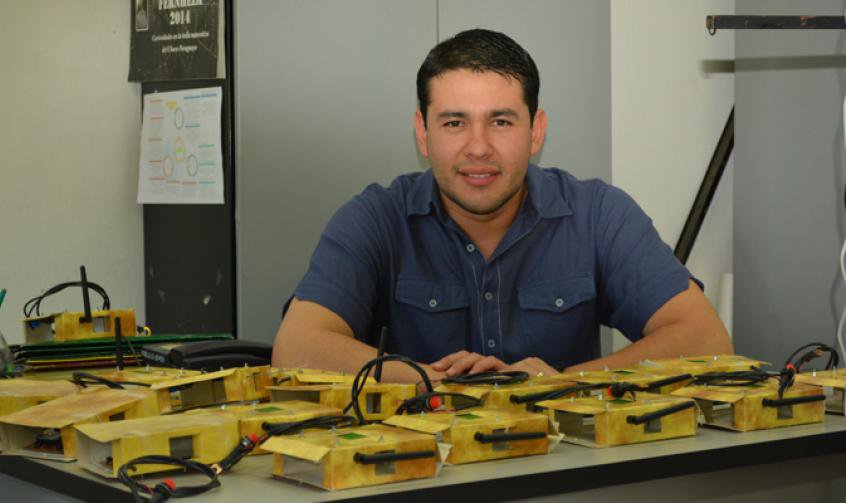"Chagas disease is an endemic problem in Latin America, where it represents the most common parasitic disease, with an estimated six to eight million people infected, according to data from the World Health Organization (WHO). The WHO includes Chagas disease in the list of poverty-related diseases. 50.000 people die annually and many more enter a chronic phase of the disease, resulting in potential cardiac and digestive disorders. Although there is a cure, it is only effective if administered during the initial phases of the disease.
This parasite is transmitted through bites, or kisses, from the winchuka (often called the ""kissing bug"" in English), a type of nocturnal bedbug. Plagues of these insects, which feed on the blood of humans and other animals, are common in rural or low resource areas, thus serving as a vector for the parasite, Trypanosoma cruzi. Insecticides represent the main weapon against this disease.
Federico Gaona, an engineer from the polytechnical department of the National University of Asunción (Paraguay), is developing a smart trap that detects the presence of winchukas. His breakthrough, which has led to his inclusion in MIT Technology Review, Spanish Edition´s Innovators Under 35 Paraguay and Bolivia 2016 awards, could be used to alert the authorities to the presence of the insect and trigger them to fumigate the area.
""Winchukas are attracted by certain pheromones, so we use these substances to attract them to the trap,"" Gaona explains. The trap is actually a detector, since the young Paraguayan has developed an electronic system capable of detecting the presence of these bedbugs within the device, which in turn sends a signal to a central server located in Asunción (Paraguay).
""The advantage of this system is that it is resistant to the temperature and dryness of Chaco []the region that comprises most of Bolivia, Paraguay and norther Argentina], while at the same time it is less expensive and more energy efficient than other systems based on video images,"" the young engineer points out.
For now, Gaona has demonstrated the efficiency of his device in detecting winchukas. The next phase of his project will take these sensors to Chaco to study their implementation as a remote detection system for authorities.
In the words of the director of innovation, research and development at Bioloinks lab (Peru) and jury member for the Innovators Under 35 Paraguay and Bolivia 2016 awards, Ysabel Montoya, ""the innovative network of long-distance detectors will create great social and economic impact on Latin America by controlling the vector of the parasite which causes Chagas disease long term."""




